ANNOYED BY POP-UPS?
You can avoid this one by signing up ;)
Get Reid's recent blog posts sent to your inbox.
THANKS FOR
HELPING AN
OLD GUY OUT!
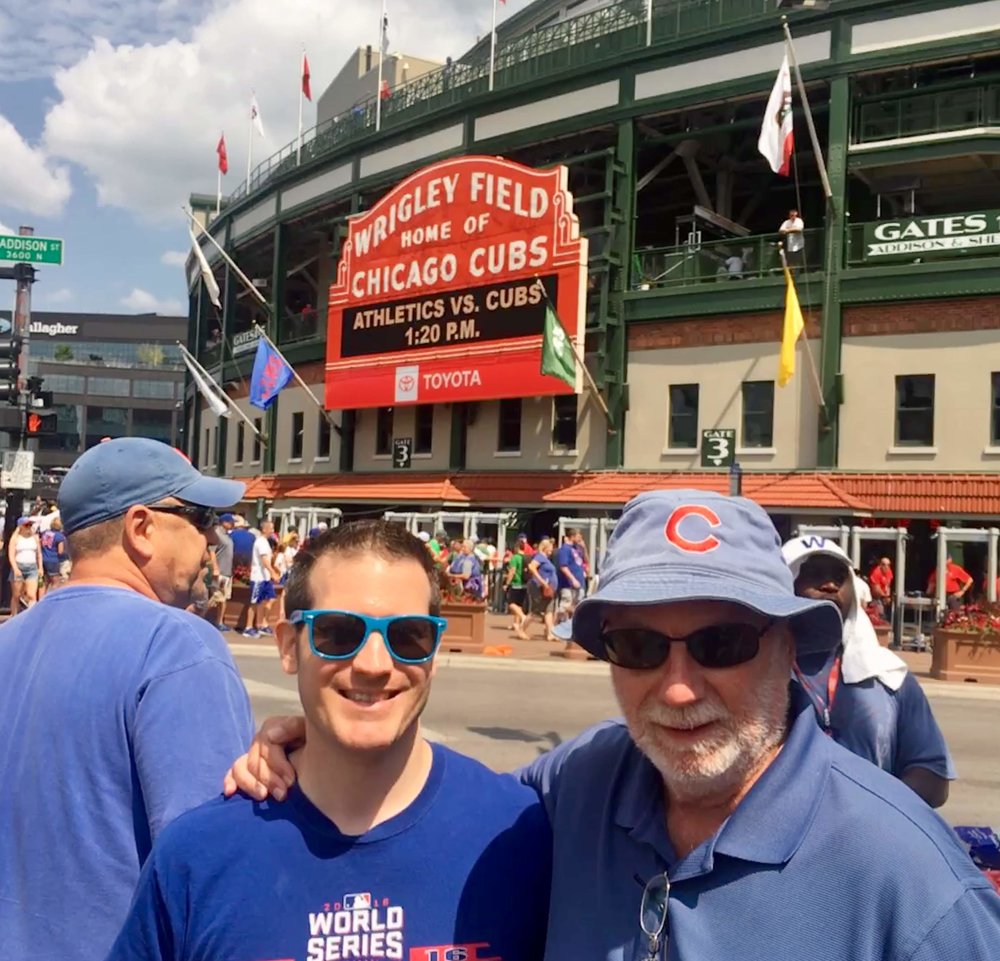
It was my daughter, aged 14 at the time, who first pronounced Wrigley Field as unfit for human habitation. Never mind that the Friendly Confines is the second oldest in the majors, dating back to 1914 (Boston’s Fenway Park opened in 1912).
“It smells like urine,” she sniffed, as she walked the concourse holding her nose.
READ MORE
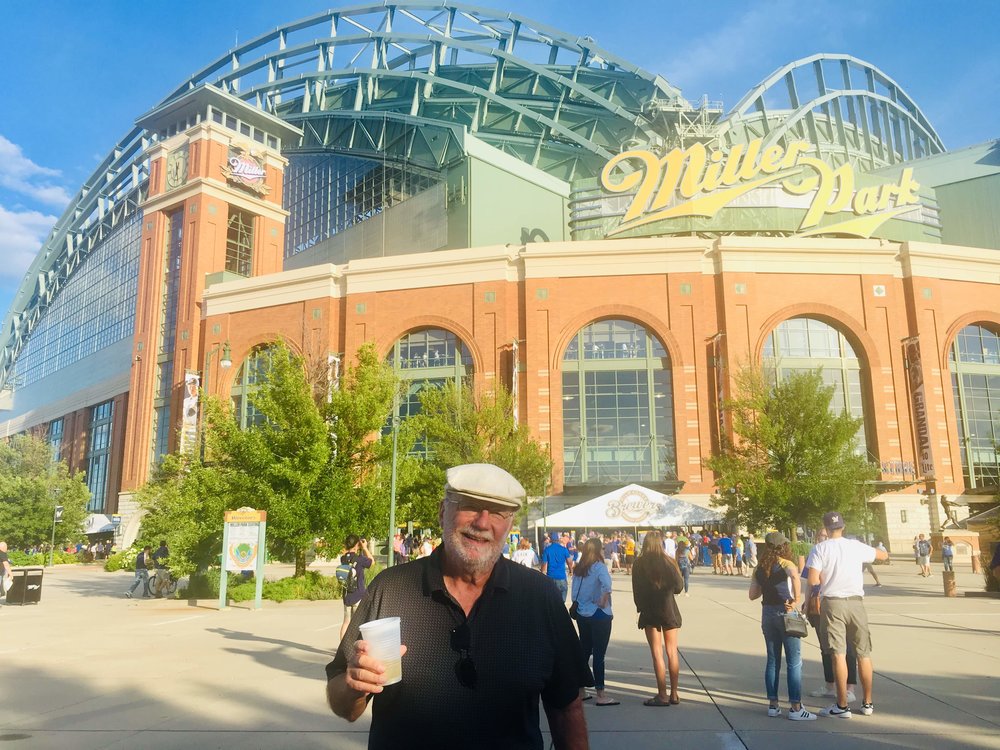
As the home of the Milwaukee Brewers has a retractable roof, there was no chance of a rain delay. We did, however, pick the very night again the home team chose to honor its newest inductees into its Wall of Honor. Since the Brewers’ former stars were always thorns in the side of the Cubs (or the White Sox when the Brew Crew was in the American League) I was not inclined to celebrate the likes of Ricky Weeks, J.J. Hardy or Trevor Hoffman.
READ MORE

One thing I’ve learned as a result of my quest to visit all 30 major league ballparks is how much less enjoyable a baseball game is compared to watching them one after another all day and night with the volume on mute, while reading, writing or just lying half-dazed on a couch.
First, there’s the presence of people -tens of thousands of them – milling aimlessly about looking for things to eat and drink, as dentists and gastroenterologists gaze smilingly at their soon-to-be-expanding revenue streams. My question is why is red and blue cotton candy not sold in grocery stores if it’s such a seemingly popular snack food? Same goes for nachos and soft serve sold in batting helmets?
READ MORE
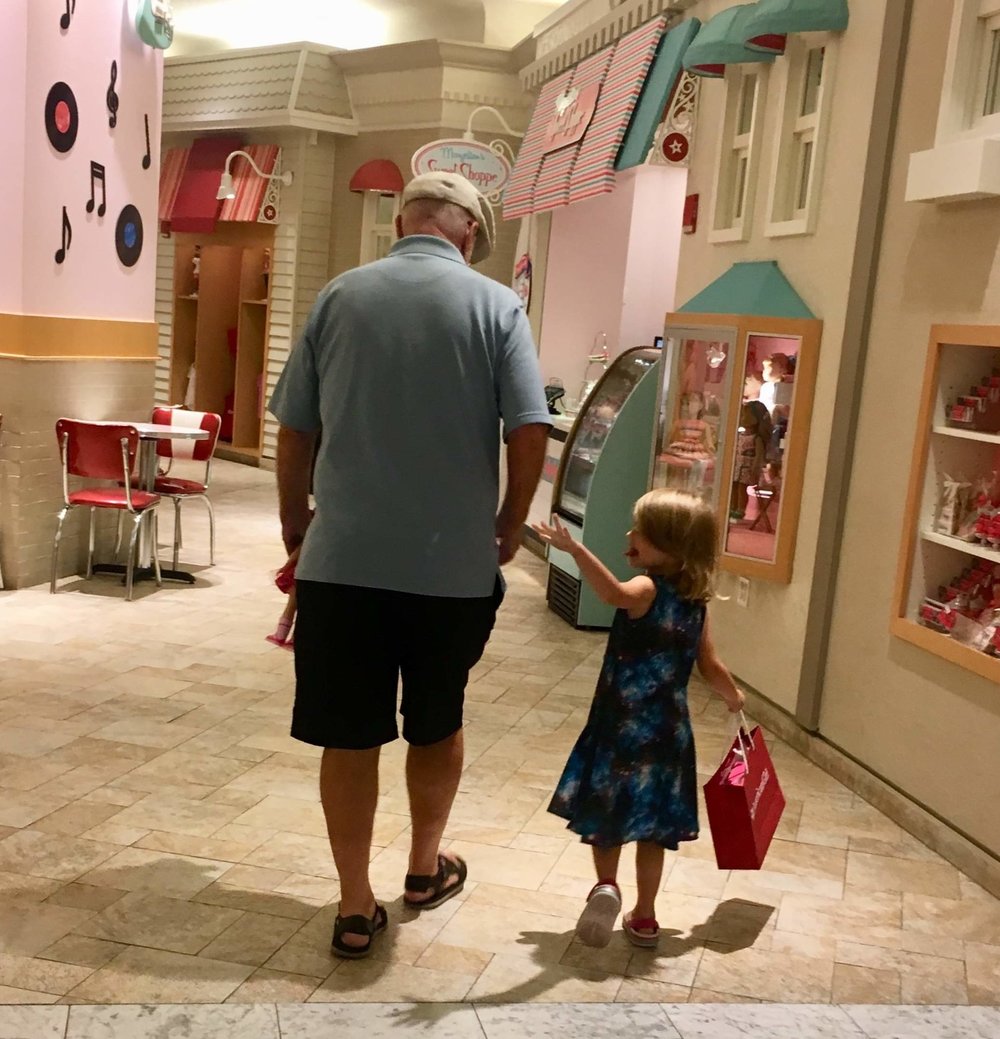
I consider taking one’s granddaughters on a road trip to American Girl Place something akin to guerilla grandparenting. As a grandpa, you are most decidedly in an alien land of pink. Armed with only a credit card, you are surrounded by the enemy’s many check out counters primed and ready for battle. Steeling yourself, you tell yourself you can get out of this with your bank account remaining in good standing, even as the dead dolls eyes of WellieWishers stare back at you with what you swear is a sneer of pure mockery.
READ MORE
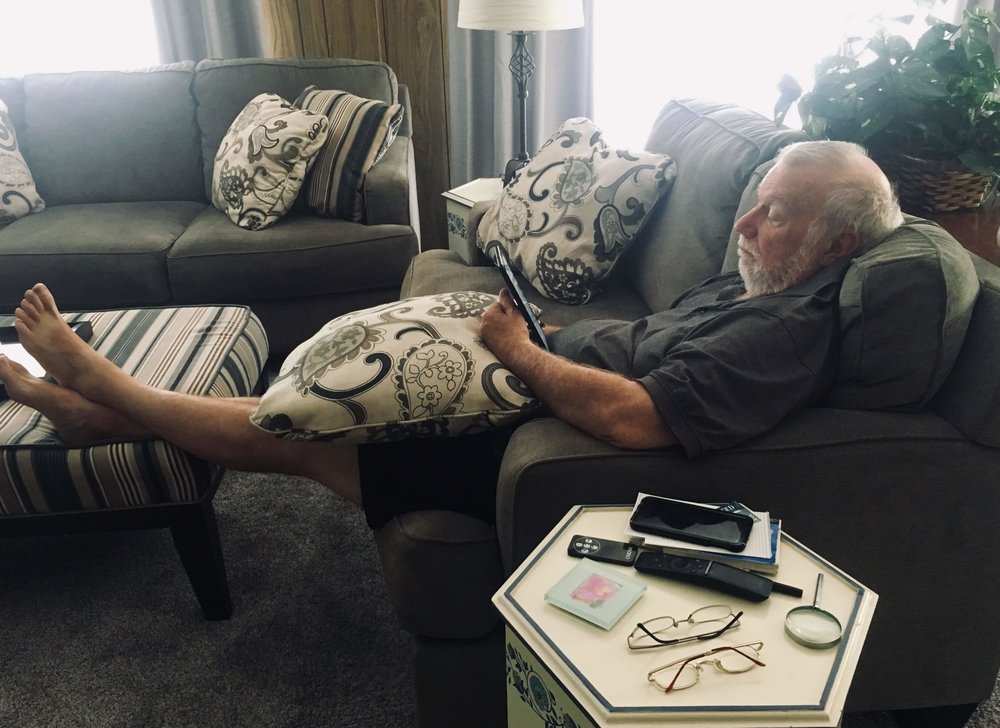
Being home
When we’re back home after a trip, Carol and I head off in different directions: she to the laundry room to wash even the clean clothes she’s returned with (“bedbugs like to hitch a ride in suitcases.:”), and I to the couch to unpack from the trip a little differently.
I first try to get the measure of whether I behaved as a tourist or a traveler. Tourists rush about cramming as much activity as they can into their two-week vacation before rushing back home exhausted, complaining they need a vacation from their vacation. I couldn’t quite put my finger on what was “off” about this last trip of ours, until I was able to reconstruct it in touristy terms. We went to Europe in the rush of its tourist season. Every place we went had some sort of a self-imposed deadline, as we were due in Heidelberg for a wedding in the middle of it. There was this drive to see as much as we could, yet not stray too far from a day’s travel from Heidelberg. Time and place did open up after the wedding, but by then the rhythm and pace of the trip seemed to have been set. We rushed home even sooner than we had planned. Carol noted my blogs of the trip lacked the usual purposelessness, with none of the charmingly pointless observations of our two earlier trips together, as well as my previous solo journeys. Not to put too fine a point on it, the trip carried the same unease for me that perplexed Gregor Samsa when he awoke to find himself turned into an insect.
READ MORE

After an experience like we had at Auschwitz, I was happy to be able to reflect, as we took the convenient and cheap Prague Airport Express bus the next morning, on our overall experiences behind the former Iron Curtain. Leaving the throngs of foreign tourists clogging the Charles Bridge behind for the more familiar throngs of homicidal maniacs in NYC brought a renewed sense of order to my world, following the previous day’s reminder just how close we can bring ourselves as a people to the Gates of Hell.
READ MORE
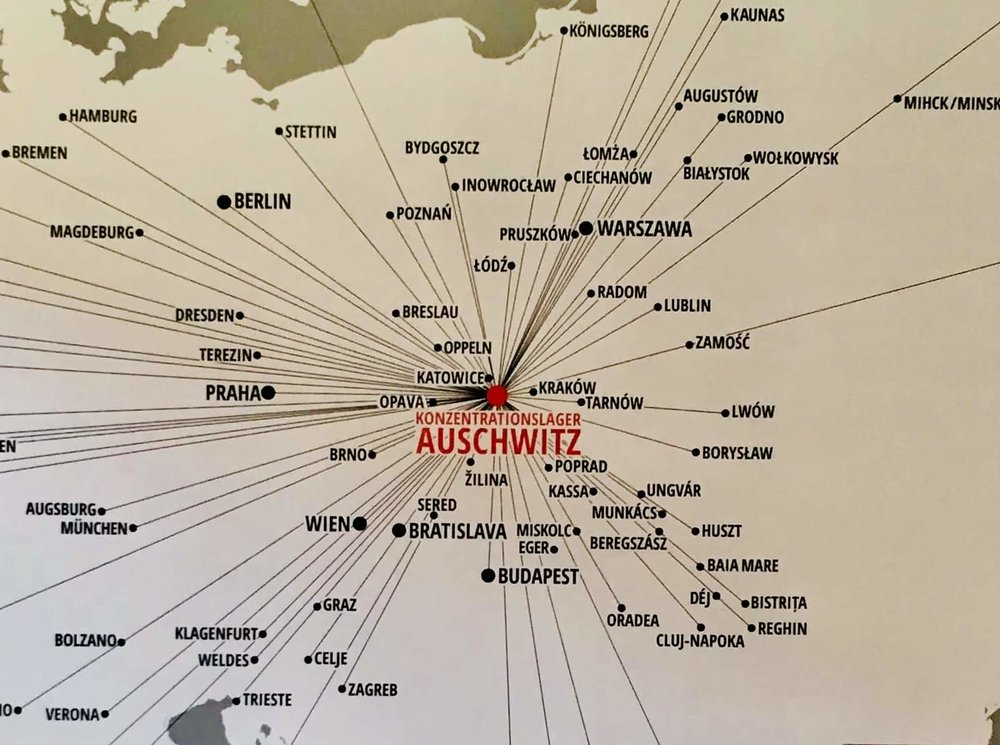
The Nazis at Auschwitz used the word Stücke or pieces to describe and completely dehumanize their captives. They didn’t start out calling them that. Back in the 1930s in a Nazi propaganda film, immigrants in general were referred to as “parasites…bringing with them crime, corruption and chaos.”
Also, Auschwitz itself did not start out as a death camp. In the spring of 1940, the Nazi conquerors of Poland needed some place to house their Polish POWs. It chose an abandoned army barracks in the town of Osiewicz, near the Polish/Czech border. Only after iterations as a work camp for Polish political prisoners, then captured Russian soldiers and finally, when penning Europe’s Jews in ghettos proved increasingly costly to maintain, did the Nazis hit upon the idea of “repurposing” Auschwitz for mass extermination. It took a full two years before Auschwitz went from POW camp to death camp. And even then, there was a period when the camp population still waged a daily “battle of starvation, disease and appalling physical abuse,” according to a BBC documentary on the camp.
READ MORE
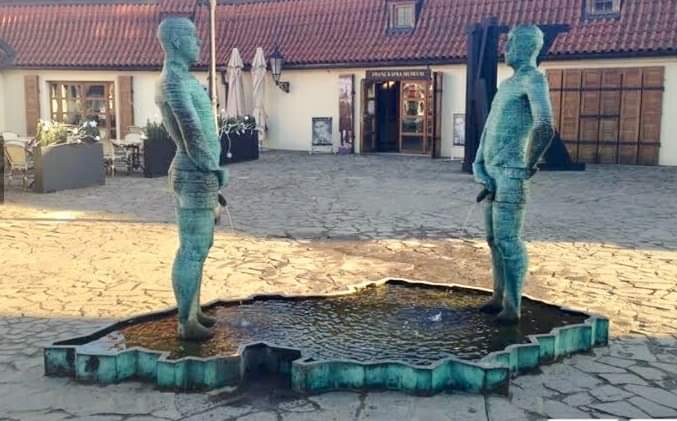
It was the bug’s bad luck to have wandered up the gossamer curtain in our hotel room, just as the early morning sun had revealed its presence like a spotlight from a guard tower.
“Reid, please kill it, it might be a bedbug,” Carol commanded, as her sleepy, still opening eyes caught sight of the invader immediately.
I was more attuned to the thought of crushing an insect in the city that was home to Kafka’s most famous work, Metamorphosis, than I was contemplating Carol’s summation of the bug’s identity as yet another swipe at my choice of low-rent accommodations. “Sorry, Gregor,” I said, as I knocked it to the floor and crushed it into extinction, “but I can’t allow m’lady to awake from a troubled sleep, now can I?”
READ MORE
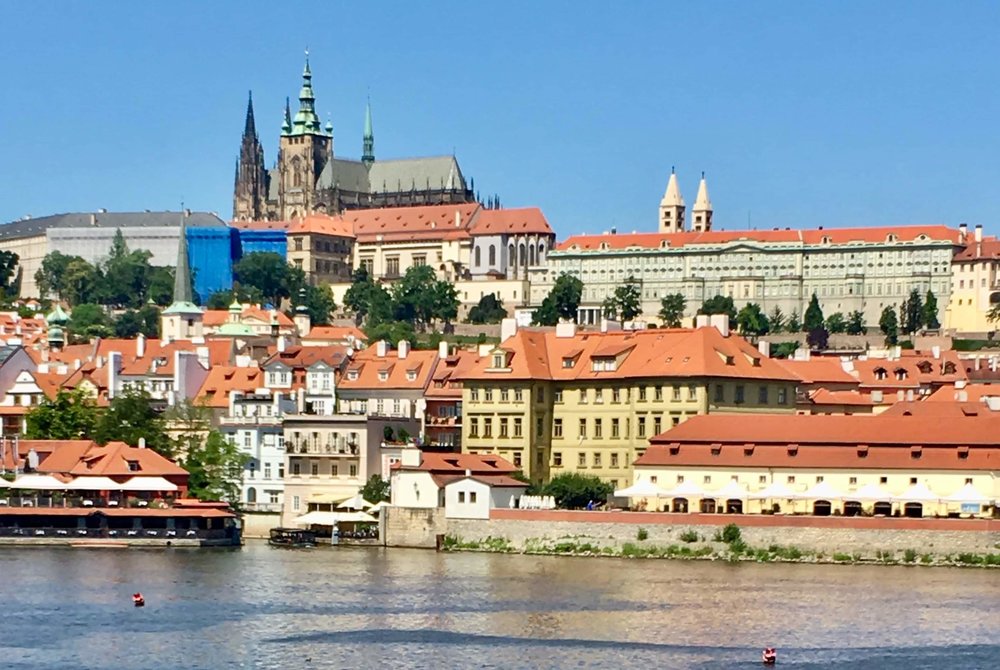
The 11:10 to Prague
To a range of responses generally ranging from the bewildered to the bemused and on to the mildly annoyed, I manfully try to address the host countrymen in their native tongue. I greet them with a bonjour, guten tag or buon giorno. When it’s time for the check, I ask for the l’addition s’il vous plait, die rechnung bitte or ill conto grazie. But all my attempts to address my Czech hosts in their native tongue were met with complete incomprehension. I think it’s the Czech alphabet that’s my problem.
READ MORE
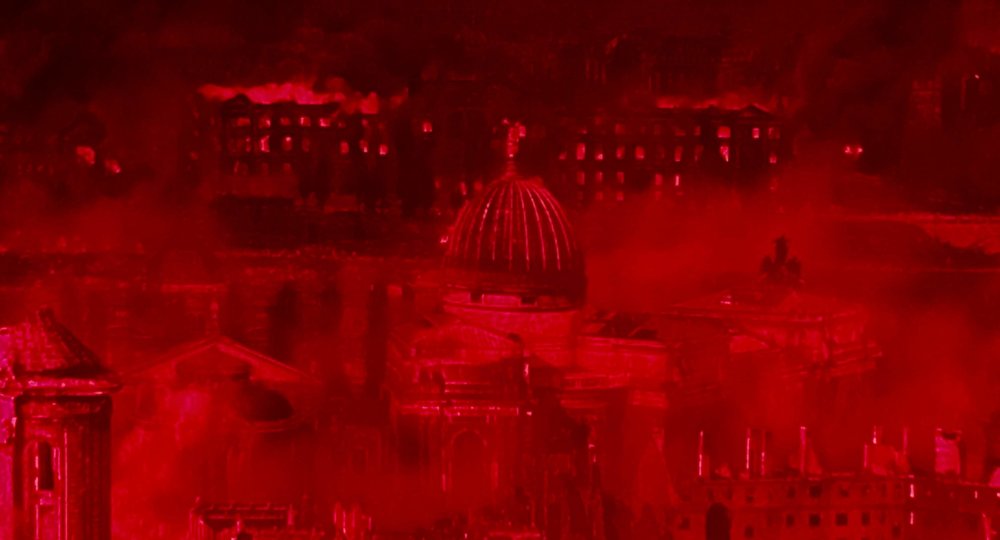
With a combination of broken German, English, sign language and baby talk, I was reassured by the Heidelberg ticket agent that our connection to Frankfurt would not split into two trains, and Carol and I could relax for the short, one-hour trip, and then on to our ultimate destination of Dresden.